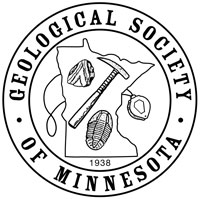Seminar Lab Date:
Seminar Lab presenter:
Seminar Lab Subject:
Seminar Lab Location :
In-person only at U of Minnesota Keller Hall Room 3-210
Address: 200 Union St. SE, Minneapolis MN (parking ramp is next door)
Lecture start time 7:00 PM CT
Seminar Lab Details:
Summary:
Despite their small size, microorganisms have a profound impact on the Earth's surface. Their diverse metabolisms and abilities to tolerate extreme conditions also make them valuable for applications to improve environmental health in impacted areas as well as to extract important metals and nutrients in ways that can be much cleaner and more sustainable than historically-used approaches. In this presentation, you will learn about research in the Santelli Geomicrobiology and Bioremediation group that examines how microorganisms can detoxify and concentrate metals of economic value, the applications for remediating polluted environments, and the opportunities for developing more sustainable biotechnologies for mining.
Biography:
Cara Santelli grew up on the Iron Range in northern Minnesota. She spent her childhood traveling to the northern shores of Lake Superior, where she fell in love with rocks and minerals. It wasn't until college that she realized how fortunate she had been to have grown up on a Banded Iron Formation. During her undergrad in Geology at the University of Wisconsin-Madison, she worked in a research lab that examined how microbial processes can both weather and precipitate minerals and how these processes impact environmental health. This work led her to complete her PhD in Geomicrobiology at MIT and the Woods Hole Oceanographic Institution where she studied microbial life at the seafloor. Cara then moved to Harvard University for a postdoctoral research position where she examined the impact of microorganisms and fungi on wastewaters from coal mining. Her enthusiasm for minerals then brought her to the Smithsonian's National Museum of Natural History as a minerals and gems curator before deciding to head back to academia and Minnesota where she is now an Associate Professor in the Department of Earth and Environmental Sciences at the University of Minnesota. She has a very active research group focused on the environmental impacts of biogeochemical cycling of nutrients and contaminants.
